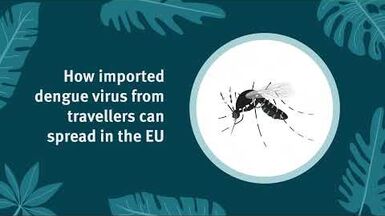Hepatitis A outbreak: EFSA coordinates food trace-back investigation
The European Food Safety Authority (EFSA) has coordinated an investigation to trace food items connected with a multinational outbreak of hepatitis A. Since January 2013, more than 1,440 hepatitis A cases have been reported to ECDC from 12 European countries, with 331 cases confirmed by genotyping.
The European Food Safety Authority (EFSA) has coordinated an investigation to trace food items connected with a multinational outbreak of hepatitis A. Since January 2013, more than 1,440 hepatitis A cases have been reported to ECDC from 12 European countries, with 331 cases confirmed by genotyping.
The investigations have been done by a working group composed of microbiologists, public health and food safety experts from France, Ireland, Italy, Norway, the Netherlands, Poland and Sweden, specialists on tracing analysis from the German Federal Institute for Risk Assessment and experts on food-borne outbreak investigations from the ECDC. ECDC is responsible for monitoring the occurrence of Hepatitis A infections in humans in the EU/EEA countries.
Laboratory testing of food items and interviews with affected people identified consumption of mixed frozen berries as the source of the outbreak. Bulgarian blackberries and Polish redcurrants have been identified as the most common ingredient in the contaminated lots and in the food consumed by affected people. No single point source of contamination could be identified but 12 food operators were identified that were linked to cases and lots in five of the affected countries. Further investigations at the local level are needed to identify where the suspect berries were harvested and the conditions at these harvest or production sites.
As contaminated berries could still be circulating in the food chain, the report re-emphasises the need for enhanced surveillance, risk communication, vaccination and further research in the area of public health. EFSA also recommends good hygiene, manufacturing and agricultural practices in berry producing countries.
This scientific report follows several Rapid Outbreak Assessments on the status of hepatitis A published by EFSA and ECDC.
Read more:




